
Although it might seem like it, digital transformation is not a brand new concept that has started to affect everyone’s life only recently. It all began with the Internet entering and influencing more aspects of it, including the way business gets done.
As a result, digital transformation basically equals a “mass adoption of technology”. There’s no doubt that technology is taking over our lives, but do we all use it the same way?

When in 2014 we researched Polish Internet users at IAB, it turned out that with 63% of penetration of smartphones in Poland more than half of Poles have no idea how to use them. The times have changed, though, and mobile devices are not going to be dethroned anytime soon.
As a matter of fact, currently, over 5 billion people are using wireless Internet, and 3.5 billion smartphones belong to almost half of the world's population.

These numbers are pretty impressive, yet, what’s more interesting is that the whole market is now clearly divided between two forces: Apple and Android devices. At the same time, however, the biggest players experience an issue with diversification. Apple, for instance, has more than 60% of revenue from only one device, which might be why it puts more and more effort in the offered services.

Still, no matter the mobile device owned, we all spend at least 3 hours a day using it - with 169 minutes spent on mobile apps and only 11 minutes on browsing websites. This does not necessarily mean that every business should create a mobile application, simply because the majority of those 169 minutes belong to a few - mostly social media apps. At the same time, this also doesn’t indicate that having your own app makes very little sense. If it serves a certain purpose and is tailored to your business, mobile apps can truly make a difference.
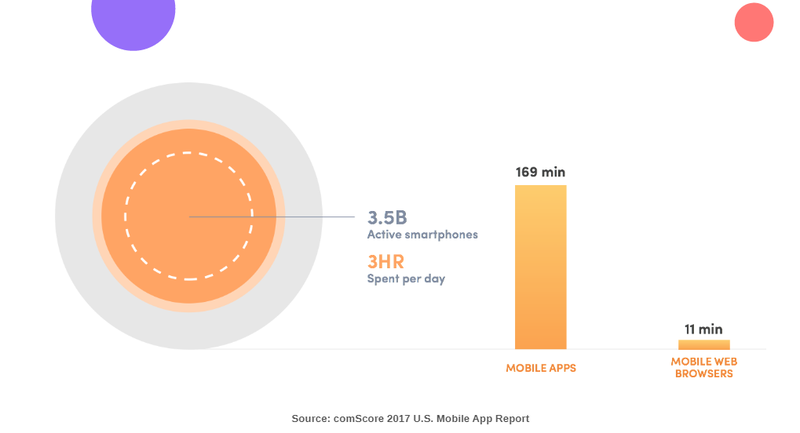
Mobile devices are not the only topic that’s on everyone’s lips nowadays. Actually, there are a few buzzwords that are most likely to affect your business, in one way or another:
Business revolving around apps, basically. It’s clear to see that the number of apps and their downloads are steadily growing, along with the users’ time and money spent on applications overall.
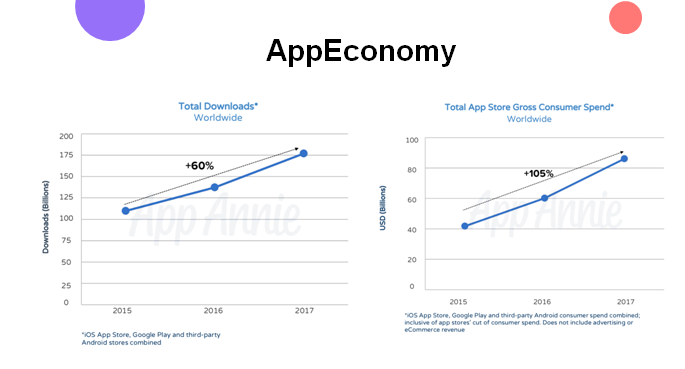
Even though the market is heavily dominated by Facebook and Google, which basically own 80% of the mobile advertising market and thus, have a strong impact on the business model of local publishers and advertising networks - there’s still some room for others. Let’s take a look at the variety of apps used when travelling, for example:
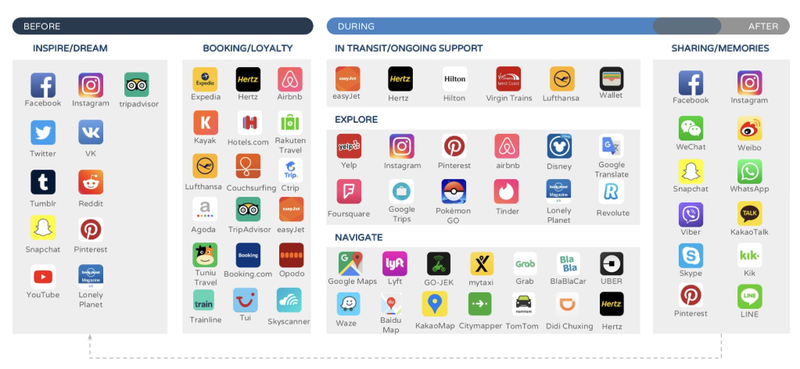
It’s not only Facebook’s and Google’s apps that accompany our trips - there are plenty of other applications that participate in the process and solve various problems along the way.
The desire of all entrepreneurs, managers, executives, startups and corporations that seems to be the key to everyone’s success. But what does it mean, exactly? Even though there’s plenty of definitions available, innovation can be described as “a sequence of actions leading to the development of new or improved products, technological processes or management systems”. If that’s too much to handle, here’s something less formal:
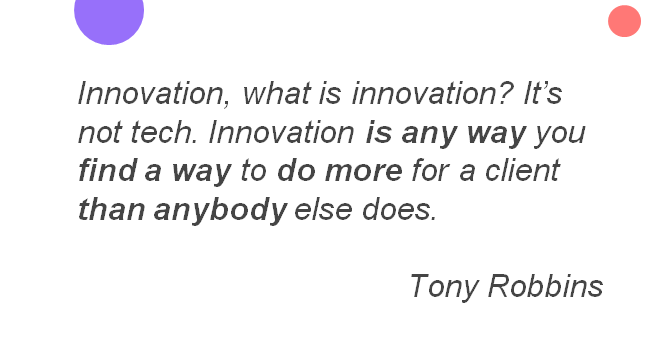
A more important question that we should be asking ourselves, though, is which innovation to choose in order to be “innovative enough”? And this is a really difficult one to answer. Mostly because it’s important to realise how specific technologies can affect our business and when is the moment to make them available to our clients, and such decisions always require careful research and analysis.
In fact, many businesses struggle with choosing the right technologies for their needs. Some time ago, PWC asked managers of large companies what they were going to invest in the upcoming years. Does it mean that all these companies are going to be innovative, then?
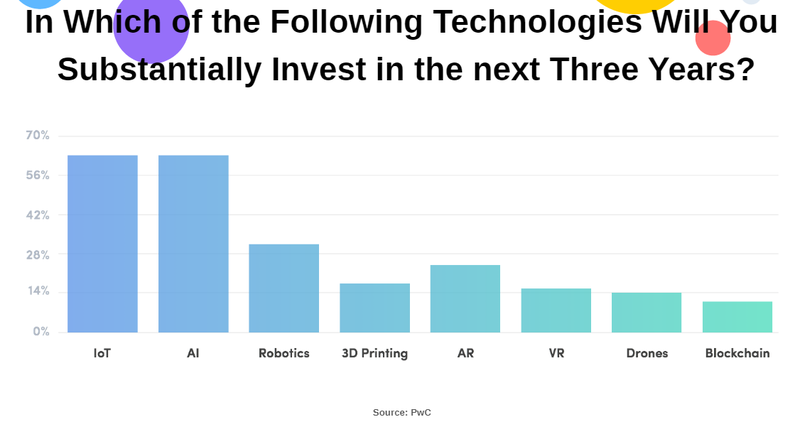
The reason why many executives don’t get much sleep these days. Disruption is an “interruption” of the current state of affairs, which can be described by the following examples:
Uber, Netflix or Airbnb are only a few examples of those who “disrupted” their respective industries. Still, it’s worth to keep in mind that not every solution is that warmly welcomed by potential users, at least not immediately. In many cases, we don’t even have to be the first to make a change - becoming mainstream is more of a matter of being in the right place at the right time.
It’s probably the most fashionable word of all of the above. As already mentioned, the recent hype almost indicates that “digital transformation” is a completely new process. The problem is that it simply means turning to technological solutions, and it all actually started when we sent the first e-mail to our customers almost three decades ago.
Therefore, it might be better to define digital transformation as a struggle with three types of debts:
Technological debt, for starters, can be caused by rigid systems and a lack of expertise. Each debt is a prelude to excuses, such as:
Process debt is even worse as it’s mostly in our heads. We find even better excuses this time because we find it difficult to leave our comfort zone:
Organizational debt - our organizations are also a good excuse to avoid changes, as we often look for someone who is going to help us, but we do not really want to give him or her the power to implement the changes.
It’s interesting that with all those concepts, we often forget to notice fundamental changes made all around us. Big corporations are currently trying to create the right environment for major changes, just to be able to implement them afterwards. Small businesses, on the other hand, might be more flexible but often prove to be dependent on older technologies they once used.
How to cope with these issues in a rapidly changing world, then?
In the end, our clients’ expectations are really trivial: to have it all cheaper, faster, simpler and always.
When you think about it, today there is no digital marketing, digital transformation, or digital-anything. It’s just digital. And in such an environment everything is connected, along with your business and your customers. That’s precisely why you should really focus on your customers and their experiences with your service or product.
Still, with modern technology changing so rapidly, it’s only a matter of time before something truly disruptive emerges, such as smartphones 10 years ago. As a matter of fact, voice assistants are already seen as the next big thing.
This was a summary of the presentation I gave at Infoshare 2019. See all slides here.
Whatever happens, make sure your business is ready to embrace the changes.